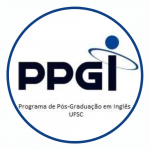Palestras e Minicurso do Projeto CAPES/PrInt “Tradução, Tradição e Inovação”
O Programa de Pós-Graduação em Estudos da Tradução (PGET) e o Programa de Pós-Graduação em Inglês (PPGI) receberão, no âmbito do projeto CAPES/PrInt “Tradução, Tradição e Inovação”, os professores Katrien Segaert e Ali Mazaheri, docentes da School of Psychology e do Centre for Human Brain Health da Universidade de Birmingham, Reino Unido. Os professores ministrarão palestras e um minicurso. Participe!
PALESTRA
The impact of ageing on language processing
Dr. Katrien Segaert (School of Psychology and Centre for Human Brain Health – University of Birmingham)
Data: 14/08/2024 (Quarta-feira)
Horário: 15h
Local: Sala Machado de Assis – CCE Bloco B – 4º. andar
In this talk, I will discuss how healthy ageing affects the production and comprehension of language, as well as the underlying brain mechanisms. I will zoom in on individual differences among healthy older adults, what might explain these, and how we could interpret them in the light of cognitive ageing theories. This will lead us to findings on intervention strategies and lifestyle factors (e.g., regular physical exercise) and how these factors can contribute to maintaining language abilities in older age. Implications for bilingualism, translation and interpreting will also be discussed.
MINICURSO – 2h
Using EEG to measure language, bilingualism, cognition and more….
Dr. Ali Mazaheri (School of Psychology and Centre for Human Brain Health – University of Birmingham)
Data: 19/08/2024 (segunda-feira)
Horário: 15h às 17h
Local: Sala Machado de Assis – CCE Bloco B 4º. andar
This mini course provides an introduction to Electroencephalography (EEG), a non-invasive technique for recording electrical activity in the brain. Participants will learn about the fundamentals of EEG, including how it captures brain rhythms both at rest and during cognitive tasks. The course will cover key analytical methods, focusing on the event-related approach and how it has been instrumental in uncovering how the brain processes information in both typical and clinical populations. Additionally, we will explore the oscillation approach, which studies the patterns of neural oscillations and their role in cognitive functions. Through these discussions, attendees will gain insights into the strengths and limitations of EEG in neuroscience research and its potential applications in clinical settings.
PALESTRA
Translational neuroscience – EEG from bench to bedside
Dr. Ali Mazaheri (School of Psychology and Centre for Human Brain Health – University of Birmingham)
Data: 21/08/2024 (Quarta-feira)
Horário: 15h
Local: Sala Machado de Assis – CCE Bloco B 4º. andar
The neurons in the brain constantly produce rhythmic electrical activity that can be non-invasively detected at the scalp. In this presentation, I will provide evidence that specific characteristics of brain rhythms—both at rest and during cognition—can be used to gauge the resilience of individuals to developing chronic pain or dementia after surgery. I will also discuss potential future directions for this research in both basic science and translational endeavors, including bilingualism.
Sobre os professores:
Katrien Segaert
Professora Associada da School of Psychology e Investigadora Principal do Centre for Human Brain Health, Universidade de Birmingham, Reino Unido. Sua pesquisa tem dois focos principais: (1)a neurobiologia do processamento da linguagem, especificamente os mecanismos cerebrais envolvidos no processamento de sentenças e na interação comunicativa e (2)as alterações na infraestrutura neurobiológica do processamento da linguagem relacionadas ao envelhecimento e ao estilo de vida. Fez graduação e mestrado em Psicologia (University of Leuven, Bélgica) e doutorado na Radboud University (Holanda). Foi pesquisadora do Max Planck Institute for Psycholinguistics (Nijmegen, Holanda).
Ali Mazaheri
Professor Associado da School of Psychology e Investigador Principal do Centre for Human Brain Health, Universidade de Birmingham, Reino Unido. Sua pesquisa volta-se para o papel das oscilações cerebrais na cognição e no comportamento, com foco nas interações neurais envolvidas no controle cognitivo, em populações saudáveis e clínicas. Fez graduação e mestrado em Neurociências na Universidade de Toronto (Canadá). É doutor em Neurociência Cognitiva pelo Donders Institute for Cognitive Neuroimaging (Nijmegen, Holanda). Realizou pós-doutorado na Universidade da California (Davis) e foi professor assistente no Departamento de Psiquiatria da AMC-University of Amsterdam.








